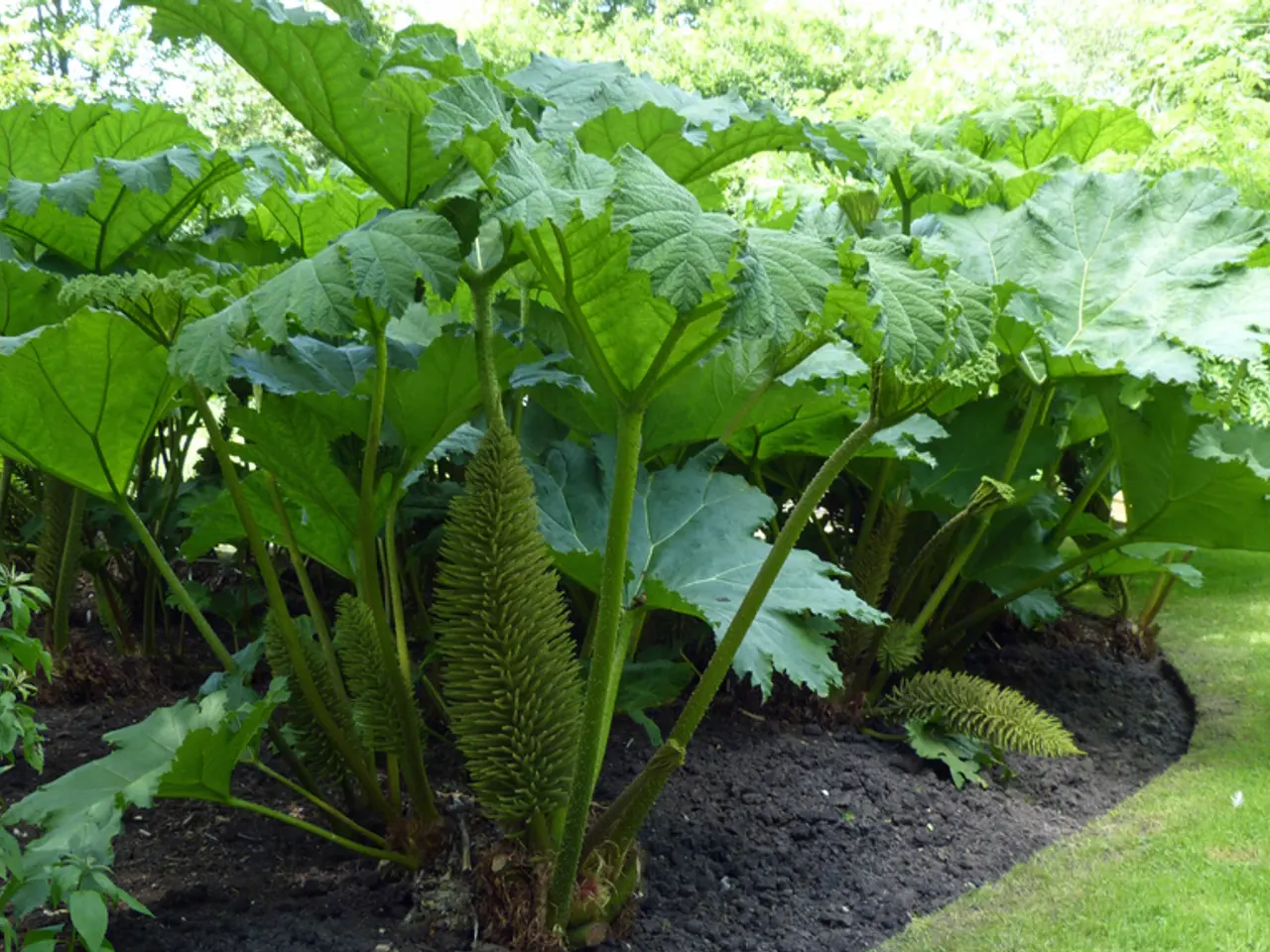Improving Soil Around Established Plants: Boosting Garden Vitality through Mindful Tactics
Improving Your Garden Soil: A Guide to Essential Amendments
Gardening enthusiasts know that the health of plants starts with the soil. A well-amended garden bed can foster vibrant growth and support a thriving ecosystem. Here's a rundown of essential soil amendments to enhance plant growth and improve soil quality.
Compost is a garden staple, providing a balanced mix of nutrients, improving soil structure, increasing water retention, and supporting beneficial soil microbes. Well-aged compost is particularly effective for a wide range of soil types.
Manure is another organic amendment that supplies slow-release nutrients and enhances microbial activity, improving fertility organically.
Cover Crops, such as clover, vetch, or rye, are plants that fix nitrogen naturally, protect soil from erosion, add organic matter, and boost microbial biodiversity.
Peat Moss is effective in improving texture in clay soils by increasing aeration and drainage.
Gypsum is used to improve clay soil structure by breaking up dense clumps, enhancing drainage without altering pH significantly.
Lime raises the pH of acidic soil, improving nutrient availability, while elemental sulfur can lower alkaline pH levels, helping balance nutrient uptake.
Wood Ash is another alkaline amendment that can raise pH and add potassium. Bone Meal is a source of phosphorus for root development and flowering.
Biochar enhances soil nutrient retention, water holding capacity, and microbial habitat.
Additional best practices include mulching to conserve moisture and add organic matter, practicing crop rotation to avoid nutrient depletion, and minimizing soil disturbance to preserve soil structure.
During the hotter months, it's crucial to focus on creating a balance of moisture and air in the soil to support a vibrant root system and healthy plant growth. Wood Chips improve aesthetic, reduce weeds, and retain moisture. Using techniques like core aeration alleviates compaction, making the soil more permeable in spring.
The ideal garden soil is loam, a balanced mix of clay, silt, and sand. However, with the right amendments, even poor soil can become a rich, well-draining, nutrient-filled medium. Regularly adding organic matter is vital for maintaining and improving soil fertility and structure over time.
Before amendment, it's essential to test your soil to select the most appropriate materials and quantities for improving plant growth effectively. Testing can reveal your soil's current texture, nutrient levels, and pH, allowing you to make informed decisions about the amendments needed.
Glen, a gardening expert with over 15 years of experience in garden maintenance, design, and landscaping services, shares his insights through his latest posts, including "Garden Fungicides: Essential Tips for Disease-Free Plants", "When to Pick Candy Cane Peppers: Optimal Harvest Time Guide", and "When to Pick My Watermelon: A Gardener's Guide".
In conclusion, the choice of amendments depends on your soil's current texture, nutrient levels, and pH. With careful planning and the right amendments, you can create a thriving garden that rewards you with years of vibrant growth.
Fall: The Time for Organic Materials
As the cooler months approach, it's time to prepare your garden for the coming winter. Adding leaves and compost to garden beds improves water retention and promotes beneficial microbial activity, setting the stage for a healthy spring garden. Top-dressing perennials with compost enriches the native soil, ensuring your established plants have the nutrients they need to thrive.
Laying down mulch regulates soil temperature and moisture during fall, protecting your garden from the harsh winter weather. Amending soil around existing plants is an ongoing task that requires careful attention to avoid damaging root systems. Incorporating a little more compost or well-aged manure for additional nutrient input in spring will help your garden flourish.
With these tips and amendments in mind, you're well on your way to creating a garden that thrives, year after year. Happy gardening!
[1] Soil amendments for improving soil quality and enhancing plant growth. (2021). University of California Agriculture and Natural Resources. https://ucanr.edu/sites/Soils/files/285627.pdf [2] Soil Amendments for Home Gardens. (2019). University of Florida IFAS Extension. https://edis.ifas.ufl.edu/pdffiles/UV/UV07000.pdf [3] Soil Amendments. (2021). Cornell University Cooperative Extension. https://extension.cornell.edu/homegarden/soil-amendments/ [4] Soil Amendments: Organic and Inorganic. (2020). North Carolina State University Extension. https://content.ces.ncsu.edu/soil-amendments-organic-and-inorganic/
- To create an optimal home-and-garden lifestyle, it's crucial to amend the soil during cooler months, such as fall, by adding organic materials like leaves and compost, which improve water retention and promote beneficial microbial activity.
- In addition to gardening fundamental practices like composting and using manure, home-and-garden enthusiasts might also consider incorporating home-improvement elements that complement the outdoor space, such as water features, decorative pathways, or garden jewelry, to further enhance the overall aesthetic and lifestyle.



